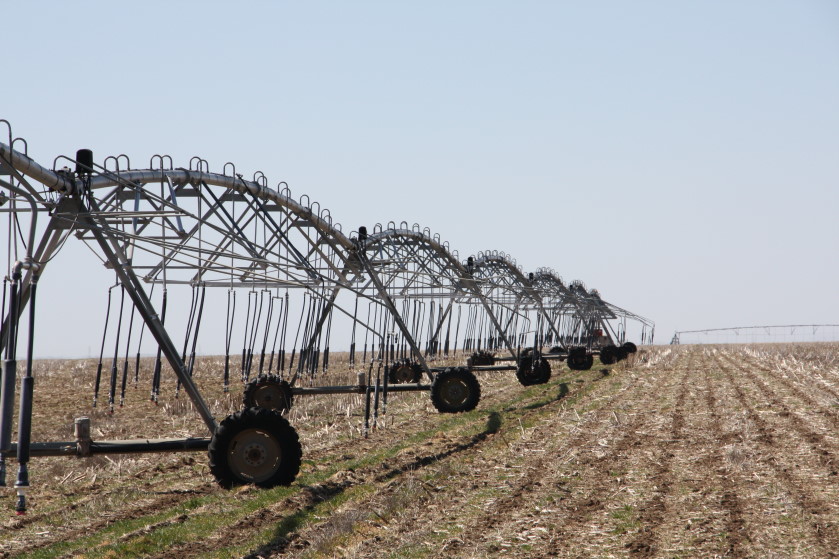
Agricultural News
Managing Salinity in Ground Water Needed to Improve Soil Quality
Thu, 27 Aug 2015 19:41:09 CDT
 Water quality has a greater impact on soil quality than once realized. Marginal wells have provided farmers with much needed irrigation water during drought, but the recent effects of five years of continuous drought has become more apparent. Oklahoma State University Research Director Randy Boman has conducted research on the issue at the Southwest Research and Extension Center. He has seen how those marginal quality wells have increased salinity levels in the soil and that causes production to decline.
Water quality has a greater impact on soil quality than once realized. Marginal wells have provided farmers with much needed irrigation water during drought, but the recent effects of five years of continuous drought has become more apparent. Oklahoma State University Research Director Randy Boman has conducted research on the issue at the Southwest Research and Extension Center. He has seen how those marginal quality wells have increased salinity levels in the soil and that causes production to decline.
Yields decline because plants are using more energy to remove the salty water, rather than putting on yield. Boman said salty irrigation water can result in osmotic issues in the soil. With higher soil salinity levels, it may become more difficult to get a crop established. Boman said farmers may have to switch up their crop rotation in planting more salt tolerant crops, like barley or cotton. If the situation continues, he said salinity can damage the soil and might result in expensive reclamation.
"At the end of the day, I think what we need to be better stewards of the water, kind of understand what we're doing there with respect to the water and also be following up and checking the soil situation," Boman said.
Rain can flush salinity through the soil profile, but it takes a lot of rain for that to occur. Boman said this year they did soil testing in March and then again in July. In some areas, rainfall totaled 30 inches. In resampling those fields, he said some of the soil salinity was moved from the soil profile. This could allow some fields to return to normal production.
This should encourage farmers to look at the water quality in the wells they pump for irrigation. Boman thinks it's going to be important to have a better feel for what they're actually pumping out into the field. If there isn't adequate rainfall for multiple years, he said the salinity can not be flushed through the profile. If the Southern Plains get into another year like 2011, Boman said farmers will want to really think about the impacts of pumping and decide if the benefits are worth the risk.
Radio Oklahoma Network's Leslie Smith interviewed Randy Boman at the recent Irrigation Conference held in Fort Cobb, Oklahoma. Click on the LISTENBAR below to hear the full interview.
WebReadyTM Powered by WireReady® NSI
Top Agricultural News
More Headlines...




















